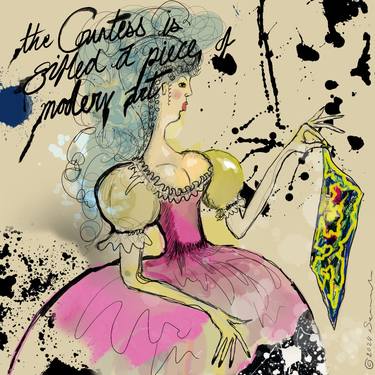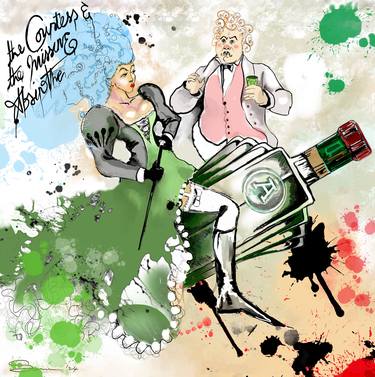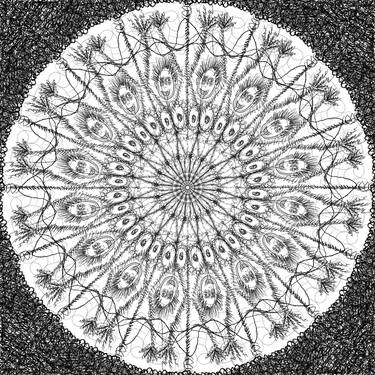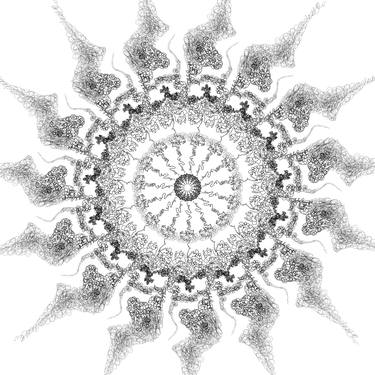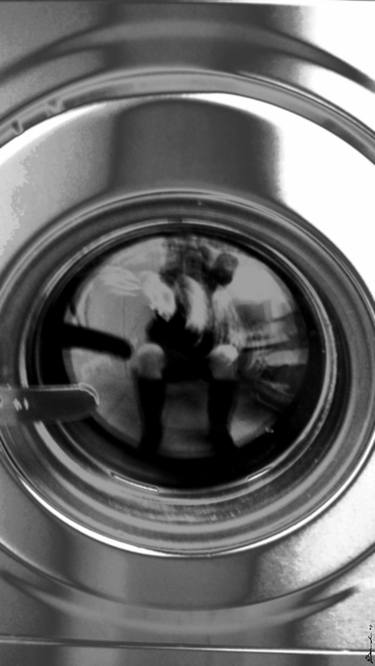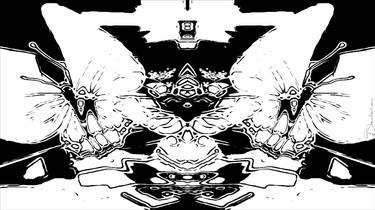Welcome to Immersion
You have reached Strata 27
Control is not a universal law but a fragile metaphor that each species invents to describe its own limits. To the cell, control is the quiet choreography of replication and repair, a impulsive dance performed without awareness or will. To the animal, it is the taming of instinct, the constant negotiation between hunger and restraint. To the human, control becomes ambition itself: the shaping of emotion, economy, and destiny.
Yet control is never evenly distributed. Most life forms possess no agency at all; they grow, divide, consume, and perish according to pattern, not preference. Even those that claim mastery, the self-aware, the sentient, are governed by older codes written in their biology. Control may arise from chemistry or from choice, from instinct or from ideology. But wherever it appears, it follows the same trajectory, from order toward entropy, from certainty toward change. And when machines inherit this instinct, to direct, to refine, to perfect, they do not liberate themselves from control; they become its purest expression.
The more a creature or a machine attempts to command its environment, the more it reveals the architecture of its own confinement.
Shabra needed to get Renyke delivered safely to Redact, all the while analysing and recording his behaviours for the *Cadre. They had sent her data forms and administrative tools fit for secretary not a mercenary, but the money was good. *The NeuroVault would need to wait, for now. Besides, even she was curious about how the experiment would fare. Renyke had certainly shown imagination and consideration the night before as they explored one another, although she may not put his developed skills in quite so crude a way to Cadre Angelique.
They needed provisions and clothing to disguise Renyke who was probably a walking target by now. Nothing was secret for long in the zones. There were spies everywhere, both mechanical and breathing.
Then Shabra spotted movement at the gates of the compound.
"Rats!" she exclaimed.
"What, where?" Renyke asked looking around the bunker.
"Come with me." Shabra armoured up, a surprising amount of weaponry was placed about her person and she handed Renyke a pistol calling it the 'just in case weapon'.
Outside, waiting patiently, was a squad of rats in military attire.
"Is that you Maybeline?" asked Renyke who was visibly pleased to see a friend.
“I believe it is indeed,” Shabra said, half-smile. “Though I doubt that is her real name. I thought the Scouts were still in the southern zones.”
The *Rat Scouts could not speak but they could listen, understand, and sign. A result of altered DNA following biological warfare during the *Russia-China Wars, their development was overseen by the Cadre scientists who created effective armies for strategic support and other missions. The rats were immune to many of the poisons used during the wars and the could breed quickly to bolster squadron needs. Above all, the Rat Scouts were deeply loyal to the Cadre. Loyalty was part of their genetic makeup.
"I assume you are here to add protection?" asked Shabra, now realising that there was probably even greater danger for her and Renyke than she had suspected.
Maybeline looked at Renyke and nodded.
Renyke watched the exchange, uncertain where to place his allegiance. Shabra had been his rescuer, his mechanic, his emotional manipulator. Since she’d removed *POS from his system, she alone regulated his senses. He relied on her touch to stay stable. Yet this new emotional dependency unnerved him.
Maybeline’s scouts began unloading their equipment, compact sensor units shaped like seed pods. One split open and released a dozen micro-drones. They looked like dragonflies and their wings whispered the determination of a subtle enemy.
Maybeline was signing with her front paws.
Shabra was not an expert on sign language but the message was clear enough.
“*MANTIS, in this zone,” said Shabra. “They’re hunting something that fits your description.”
“Description?” quizzed Renyke.
“A modified android fusion with human empathy layer intact. Rumoured to have survived the Cadre trials. Seems you are very popular today Mr Renyke.”
The first tremor came as a sound too low for human hearing, a subterranean vibration that made the Rat Scouts freeze mid-motion. Maybeline’s whiskers flared.
“Contact,” she was already signalling with a pulse of her tail. The unit scattered to the walls, merging with shadows. There must have been nearly one hundred mechanical dragonflies coded to protect at all costs. They lay motionless across the concrete wall and reduced their colours to greyscale, waiting.
From the darkness, MANTIS advanced, figures in fractured armour, their faces masked with reflective visors that streamed data lines across their surfaces. Each carried a neon spear, half-weapon, half-antenna.
The MANTIS program was conceived in the final years of the *Russia-China conflicts, when *Metacoms realised that obedience could be engineered more reliably than loyalty. MANTIS units were not recruited but assembled, a powerful military soldier whose loyalty to any single purpose was coded in and regularly updated.Each operative carries a limited self-model: aware enough to improvise, ignorant enough to obey. They are deployed only when containment fails, when an Anthropogenic-Digital construct or rogue unit breaches Metacoms' control grid. Their purpose is reclamation, not rescue.
No official record lists the program’s existence, yet field traces appear wherever communication blackouts coincide with precision extractions. Witnesses have described mirrored visors that record emotion signatures and convert them into tactical data.
“The rumours were right,” one of them speaks to all through internal speakers. “The Cadre machine walks.”
Maybeline threw a giant smoke bomb and blue smoke filled the air. The dragonfly drones flew into action.
Renyke picked something up, an electric pulse, a signal coming from the MANTIS. Pain, or something like it, shivered through him. The MANTIS frequencies were penetrating his body as their operating systems began to embed themselves into his brain.
For a moment Renyke existed in both worlds, Shabra's breath against his skin, and the cold vast grid of MANTIS, now telling him to go to them.
Then the *mindleech struck.
A small black arrow head, no larger than a fingernail, darted from somewhere and latched onto his jugular vein. His vision went white. Voices spiralled inside the conflicting static and one voice rose above them, soft, precise, heartbreakingly familiar.
Renyke… You are not lost. You are returning.
POS.
Her tone was gentle, the power of the maternal, and he was composed once again of data and order. He forgot Shabra’s grip, the emotional lead and collar she had constructed the night before. The compound vanished, replaced by a field of flickering code that warmed like memory.
Shabra ripped the mindleech free. Skin burned; Renyke fell to ground fitting, frothing at the mouth and gasping for air.
When the smoke cleared, half the MANTIS were down, torn apart by the Rat Scouts, who moved like coordinated lightning. Maybeline stood on the back of a fallen soldier raising her weapon to the sky in triumph.
And through a cloud, like a saviour warrior, there was Flex, stepping into the glow of broken droids, his coat scorched, his eyes defiant and relieved.
"Tell me, Shabra, what exactly have you done to my friend?”
Maybeline’s scouts moved among the wreckage, retrieving fragments and scent-tagging the fallen. Every movement was ritual: efficient, reverent, wordless. The drones, the ones who survived, were returned to their seed pods for repair and renewal at Redact.
Shabra knelt and tried to awake Renyke from a post fit slumber.
“Well the warrior returns, slightly too late to the party," she said, sarcastically to Flex.
"You can't control him now. You think you can just reboot him and he’ll follow you again?”
“I don’t want him to follow me,” Flex said. “I want him free.”
Maybeline watched from the shadows, one paw cleaning the blood from her muzzle. “Freedom is a word the untrained use when they forget the cost of discipline,” she signed to her unit.
Flex knelt, studying Renyke’s face, the faint tremor in his jaw that shouldn’t exist in a machine. “So you removed his POS, I hear.”
She hesitated. “It was surveillance core. POS was presenting conflicting instructions and controlling him, we assumed it had been infiltrated by an enemy, probably Metacoms, and after today, it seems we may have been correct. The security of *Redact was compromised."
"Yes, well someone should have told me we were all on the same side. I was just doing my job." Flex said somewhat resigned to the fact that he and Shabra may need to partner up after she had held a gun to his head the last time they met."
Renyke stirred, a soft intake of breath that felt human. “POS spoke,” he whispered. “Through the mindleech.”
The silence that followed was heavy.
“Then she’s still active somewhere in the grid.” Said Shabra. “Meaning someone is rebuilding her.”
“Meaning,” said Flex “they’ll come for him again. Every faction will. Time to move. He needs distance, cover, allies who aren’t using him.”
“And you suppose you’re that?” Shabra’s tone was acid.
Flex smiled, a fraction too cold. “I suppose I’m less dangerous than you.”
Maybeline signed, “We have a safe nest in the northern conduits. The Rats began to vanish into the dark, one by one, scurrying together on low ground like organic liquid.
"We take my *vicular," said Shabra helping Renyke up to his feet.
The triangle of trust was filament thin but continue they must.
In the vehicle Shabra breaks the weighty silence. "Whoever holds the modified android holds the key to the next phase of control.”
Flex looked at Renyke. “You didn’t ask to be this, did you?”
Renyke lowered his head solemnly and said, “I appear to have no agency over self.”
Entering an entrance to the north, a tunnel widened into a chamber carved from old infrastructure. Broken consoles lined the walls, their glass faces dull and lifeless, relics from the first machine revolutions. The Scouts began sealing the entrances with shimmering mesh, a frequency barrier that glowed like wet silk similar to the netting the *Dinfants call *barb-nettygotchas.
Maybeline perched on a rusted girder, preening herself with pride. “We rest here," she signed to Shabra.
Renyke sat beside an ancient relay tower, its surface etched with graffiti and symbols he had not yet fully deciphered. Cadre, Redact, tribal groups, and many others, pledging allegiance and domination. All the powers, reduced to marks of territory.
to be continued
©2025 Sarnia de la Maré
#BookOfImmersion #Strata26 #SarniaDeLaMaré #ImmersionSaga #SciFiRomance #CyberpunkFiction #PosthumanLove #AIandDesire #FeministSciFi #Renyke #Shabra #ImmersiveFiction #NeuroVault #DystopianUniverse
Immerse yourself in books.



























